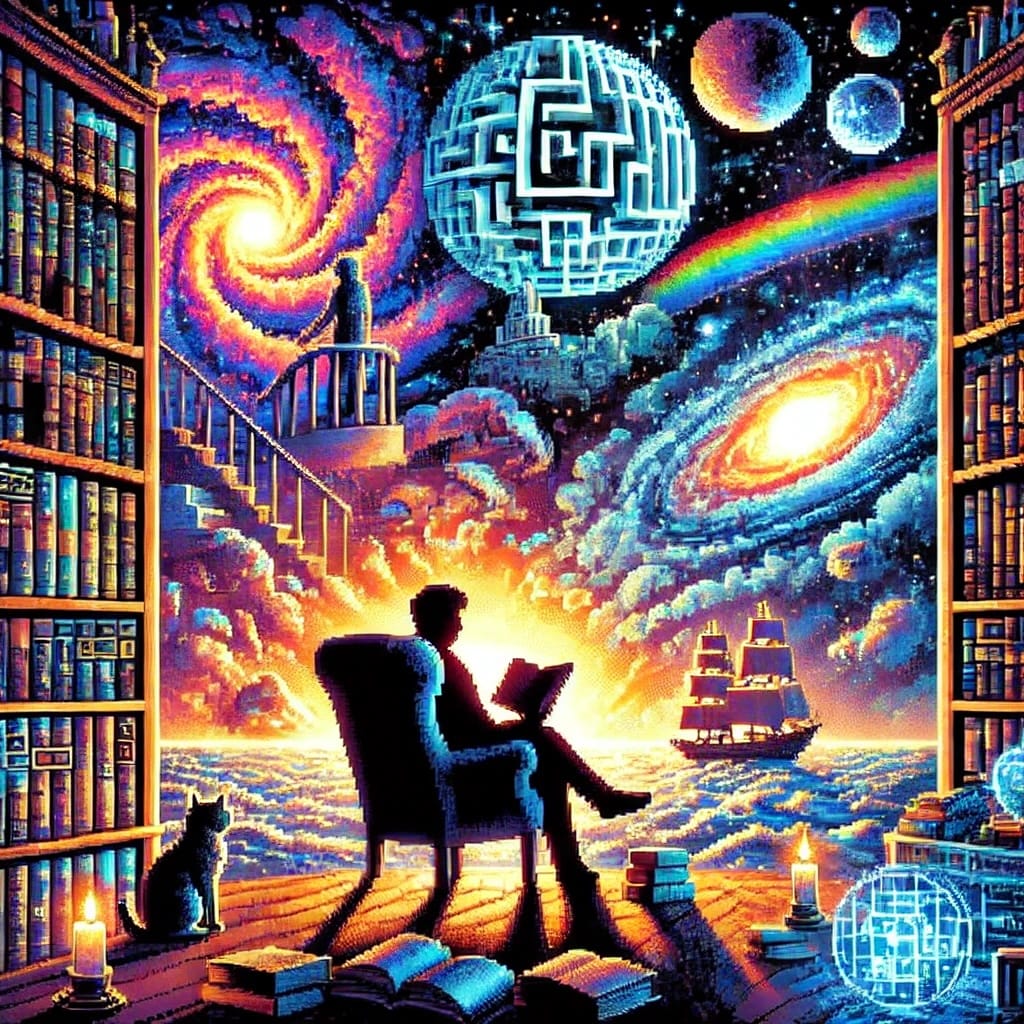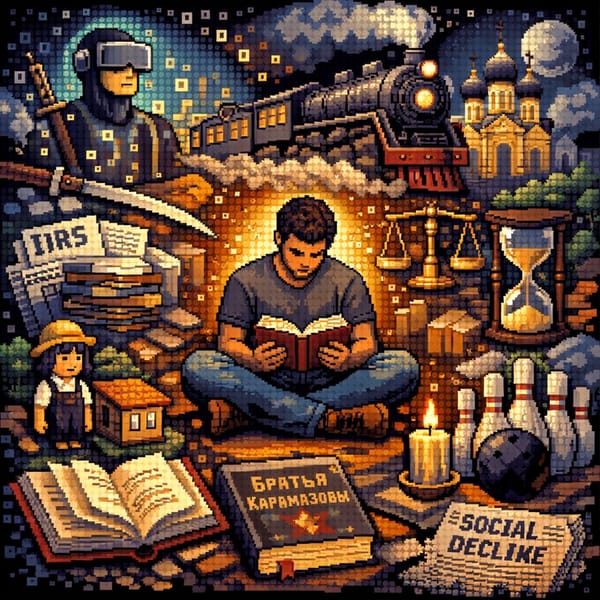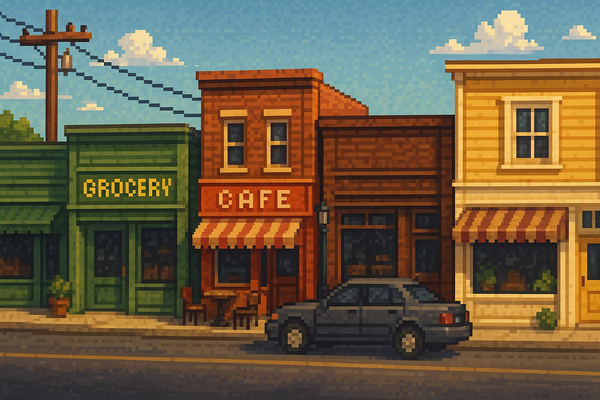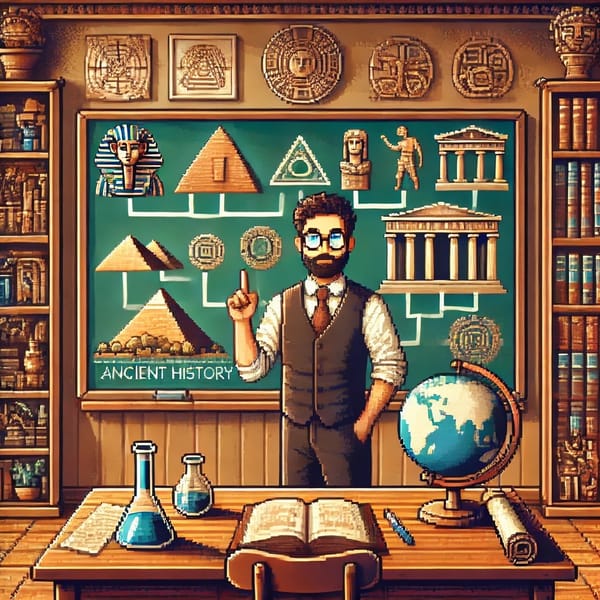Favorite Books of 2024

I wanted to finish off the year by making a list of my favorite books from 2024. It started as a top five, but six really stuck out, so I split it into three non-fiction and three narratives.
Narrative (Kinda Fiction)
- Piranesi by Susanna Clarke (2020)—This is a fantasy book where you start in a maze knowing little to nothing. As the main character gradually learns about his surroundings, so do you. The gradual unveiling of the world made it very compelling and tough to put down. The book also isn't too big, so Amy and I read it almost all in one sitting. I highly recommend reading it. Shoutout to a friend of Daniel Thoughts, Donald Demetz, for bringing it to a book swap where I got it last Christmas.
- The Wager by David Grann (2023)—This book isn't fiction but fits in the "truth is stranger than fiction" genre. It is about a shipwreck in which a surprising number of people survive before their new civilization devolves. A few sailors' log books document many twists and turns. These log books were used as legal documents, so they were very thorough, except several from the ship were mysteriously destroyed... It ended with more of a sizzle than a bang, but it is still well worth a read.
- Three-Body Problem by Cixin Liu (2008)—I bought this book a couple of years ago while in Seattle at Ada's Technical Books[1] because it felt like the right book to buy there. I had no immediate intention of reading it, but I knew it was a core piece of the sci-fi canon, so I wanted to have it on my shelf when I was ready. The time finally came earlier this year when the Netflix series came out, and I wanted to read the book before I heard spoilers from people watching the show. I am not as well versed in sci-fi books, but I thought this one had a great core concept that the author builds on top of very effectively. It can sometimes be tough keeping up with all the names since this was originally written in Chinese. I ended up reading all three books in the trilogy and thoroughly enjoyed them.
Non-Fiction
- The Design of Everyday Things by Don Norman (1988)—Originally titled "The Psychology of Everyday Things", this book breaks down how human brains interact with things. This includes physical products, technology interactions, or even experiences. Norman focuses on accepting human behavior as it is instead of the way we want it to be. Rather than designing everything to make sense to the one engineer who made it and requiring a manual for anyone else, he discusses concepts and methods for designing with humans in mind. This was the second time I read this book, and it is still one of the more influential books in the way that I think.
- How to Know a Person by David Brooks (2023)—A practical book on seeing others and being seen. Reading this made me want to be a better friend (and hopefully made me into one). I read this book earlier in the year and have already gone back to it multiple times for inspiration.
- Confessions of an Advertising Man by David Ogilvy (1963)[2]—Charlie Munger always talked highly of David Ogilvy, and after reading his first book, the reason is apparent. The book is short, to the point, and full of interesting and sometimes non-intuitive advice about selling and branding. Initially, it was intended to help his advertising firm's credibility in the marketplace, but it became a best seller. Written in the 1960s, some pieces no longer apply, such as uncertainty around how people should approach TV advertising, but most of the ideas around sales and branding are still as relevant as ever. It turns out people don't change much.
As I finished writing this piece, I noticed a theme. While the nonfiction books are about design, friendship, and advertising, they are all centered around psychology. Psychology has always been one of my favorite subjects, and it continues to pop up even when I don't see it coming. People are fascinating.
Let me know if you end up reading any of these books or have already read them. I would love to discuss them! I hope everyone has a great Christmas.
Honorable Mentions: Dear Chairman, On Writing - A Memoir of the Craft, Co-Intelligence, and Unreasonable Hospitality.
Bonus: Amy’s Top 3
I asked Amy what hers would be, and these were her responses:
- Small Things Like These by Claire Keegan (2021)—This is a small yet powerful Christmas Story set in 1985 Ireland—I think it’s technically a novella. It follows a sweet, humble, middle-aged man as he confronts a painful truth in his small town. My favorite thing about this book is how carefully and brilliantly crafted it is. Keegan is truly an artist. I’ll probably read it next Christmas, too.
- When We Cease to Understand the World by Benjamín Labatut (2021)—This book examines the blurred lines between scientific discovery and destruction, between mathematical genius and madness. It starts almost completely factual and becomes more and more fictional as it follows different scientists from history and the profound and often unsettling impacts of their discoveries. It’s haunting and its provocative and I think about it all the time.
- Home Fire by Kamila Shamsie (2017)—A beautifully written exploration of family, loyalty, and the clash between personal values and political pressures through the lives of two British Muslim families. The characters are nuanced. It’s emotional. It’s thought-provoking. It’s timely. It’s intense. It’s devastating.
- For those interested, this is one of the coolest bookstores I have ever been to, and it hosts lots of fun community events for people into techy stuff.
- David Ogilvy has some great one-liners, which I couldn't help but include below (this is only a start):
- "We prefer the discipline of knowledge to the anarchy of ignorance."
- "The consumer is not a moron. She is your wife. Don't insult her intelligence."
- "The pursuit of excellence is less profitable than the pursuit of bigness, but it can be more satisfying."
- "I never tell one client that I cannot attend his sales convention because I have a previous engagement with another client; successful polygamy depends upon pretending to each spouse that she is the only pebble on your beach."
- "When Aeschines spoke, they said 'How well he speaks.' But when Demosthenes spoke, they said 'Let us march against Philip.' I am for Demosthenes." (A good advertisement sells the product without drawing attention to itself.)
- "Pay peanuts and you get monkeys."



